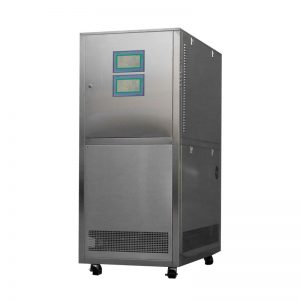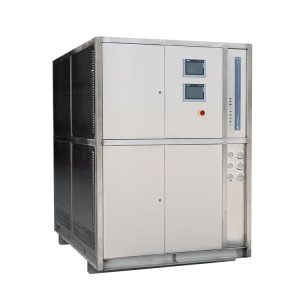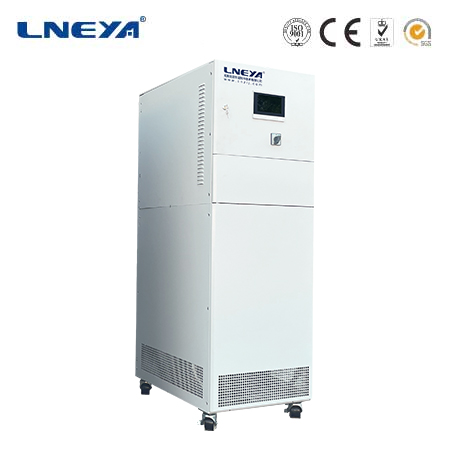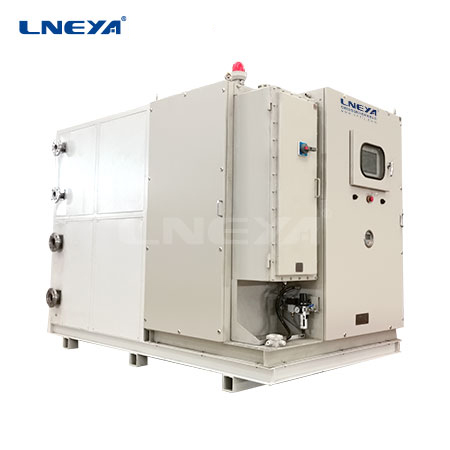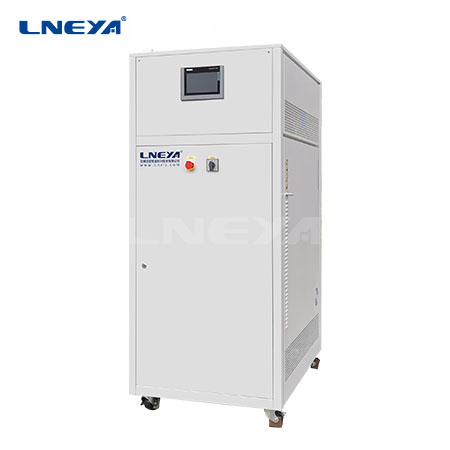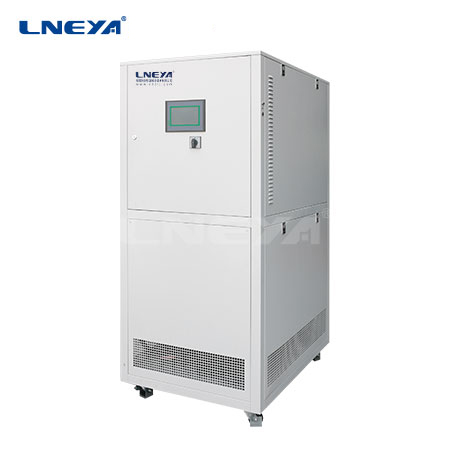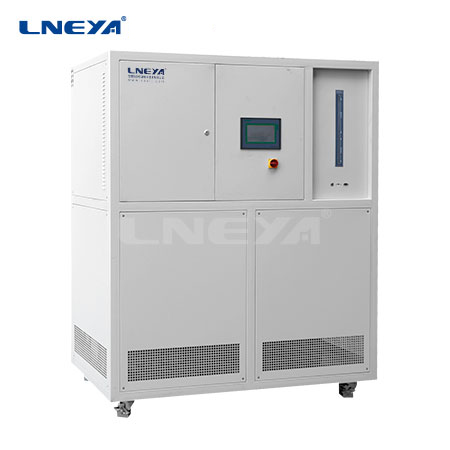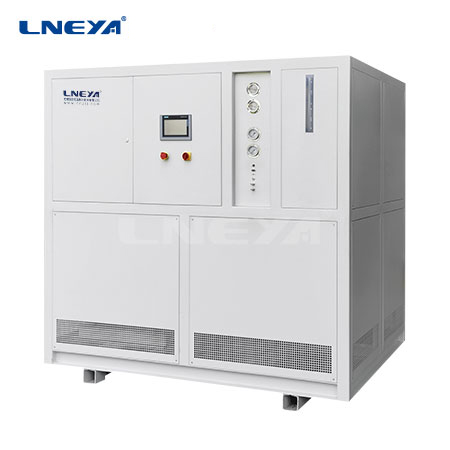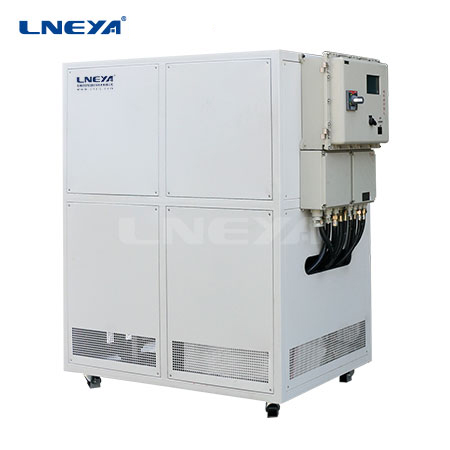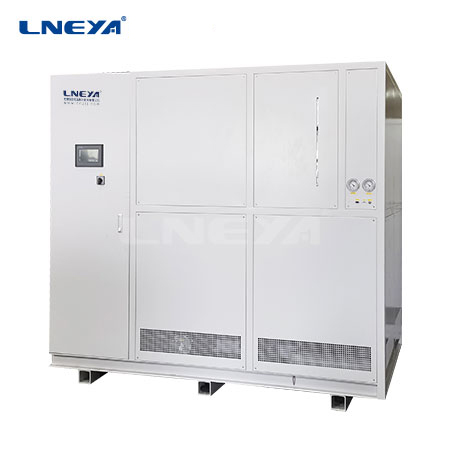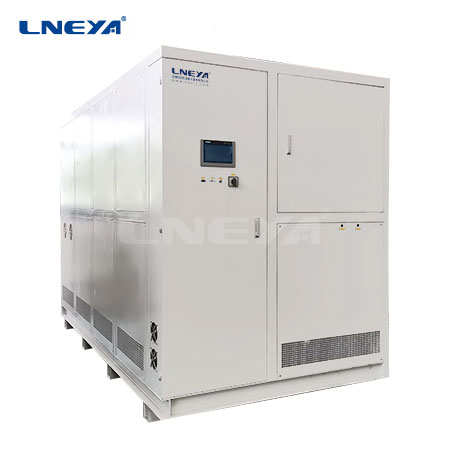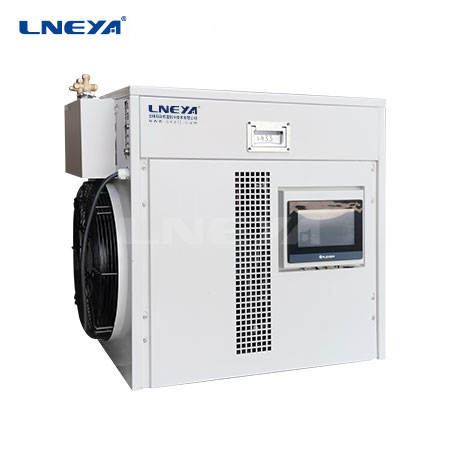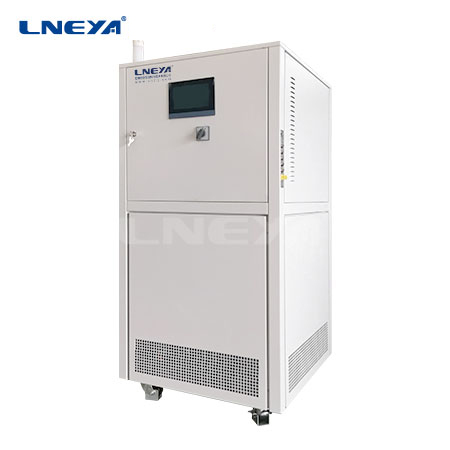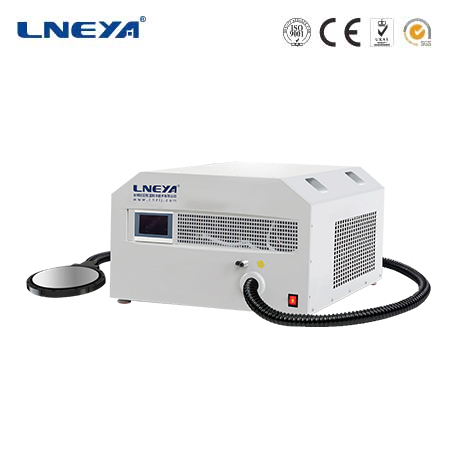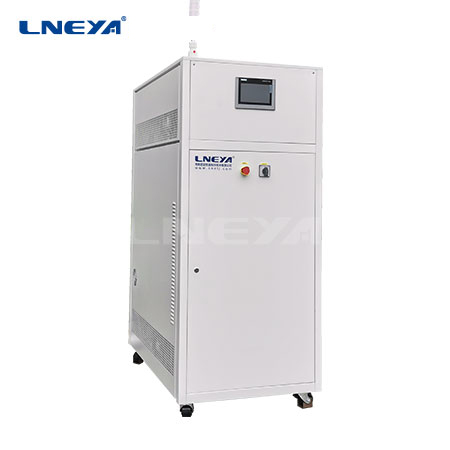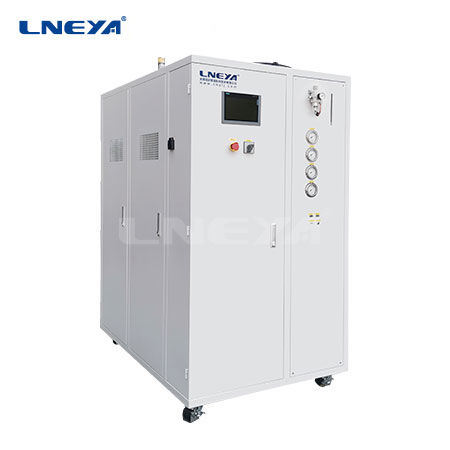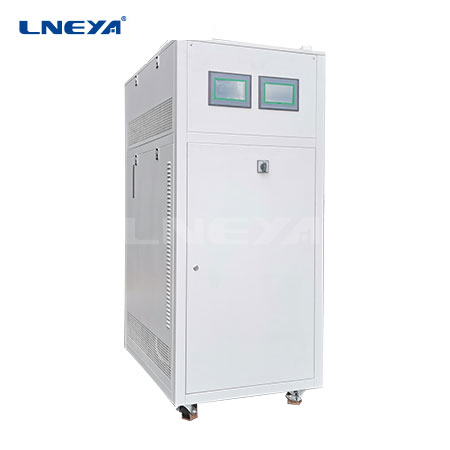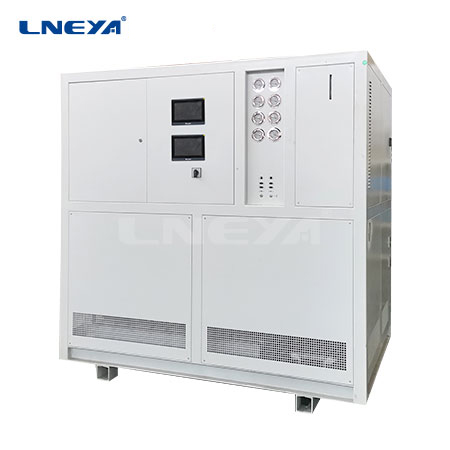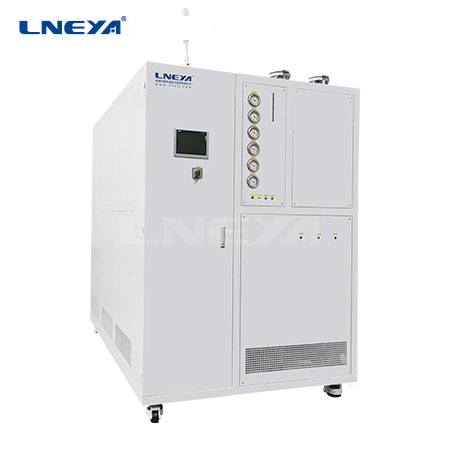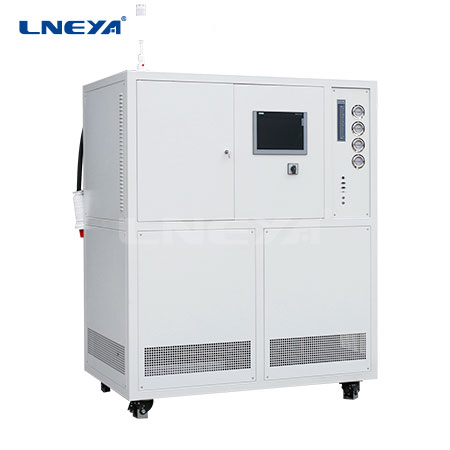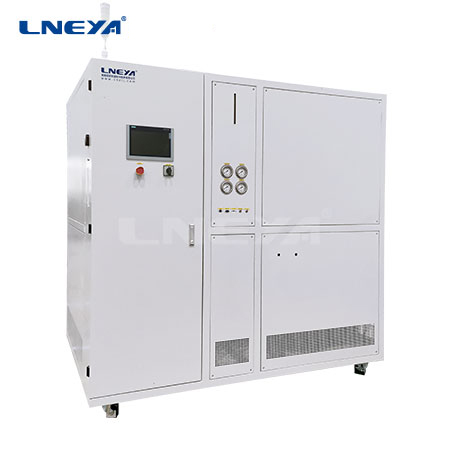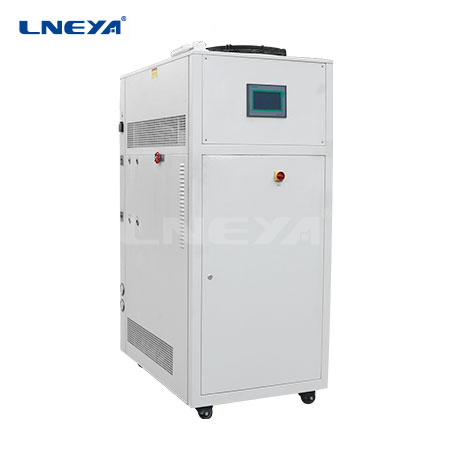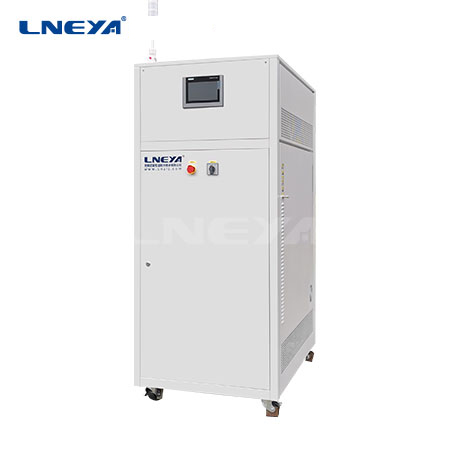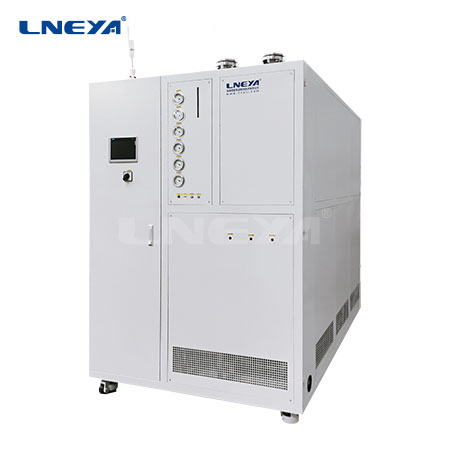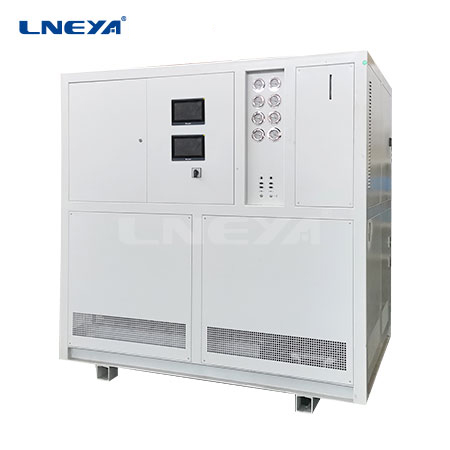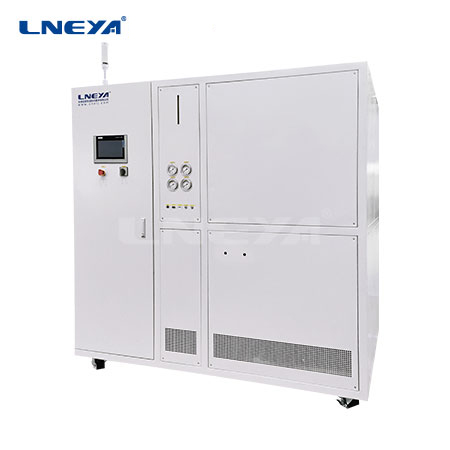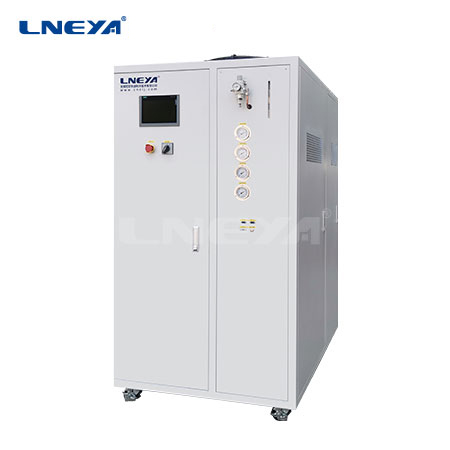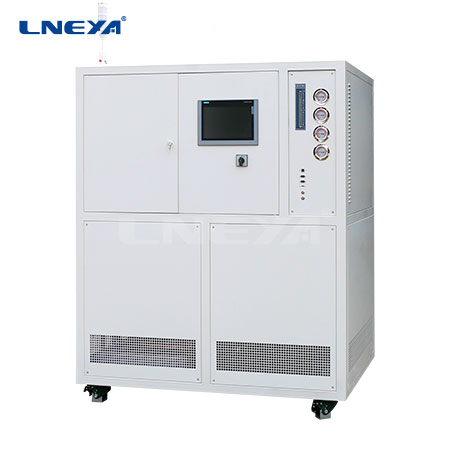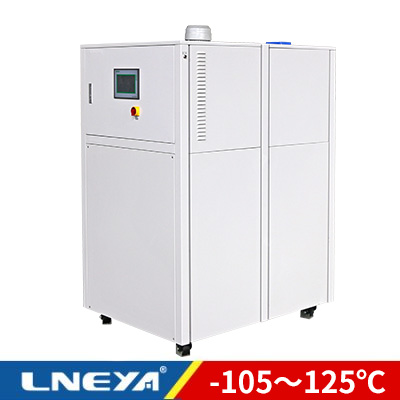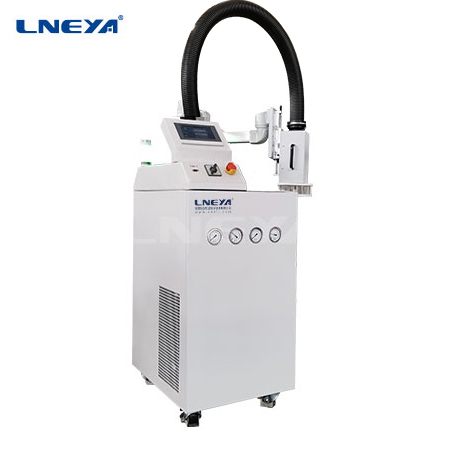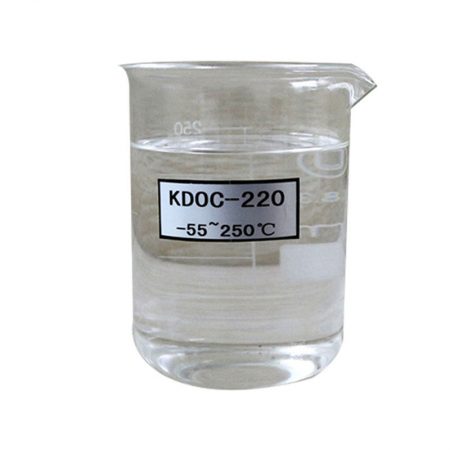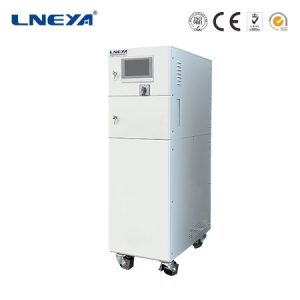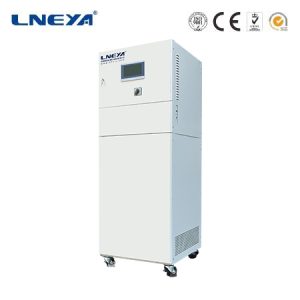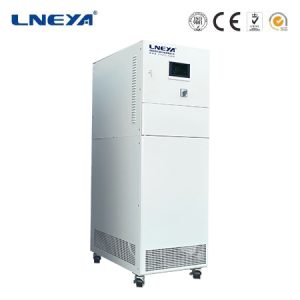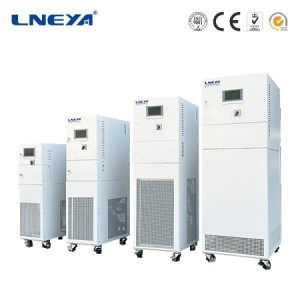Water Cooling Chiller System
The water cooling chiller system uses the shell-and-tube evaporator to exchange heat between water and the refrigerant. After the refrigerant system absorbs the heat load in the water and cools the water to produce cold water, the heat is brought to the shell-and-tube condenser by the action of the compressor. The refrigerant exchanges heat with the water, so that the water absorbs the heat and takes it out of the external cooling tower through the water pipe to dissipate it. At the beginning, the compressor sucks the low-temperature and low-pressure refrigerant gas after evaporation and refrigeration, and then compresses it into high-temperature and high-pressure gas and sends it to the condenser; After the high-pressure and high-temperature gas is cooled by the condenser, the gas is condensed into a normal-temperature and high-pressure liquid; when the normal-temperature and high-pressure liquid flows into the thermal expansion valve, it is throttled into low-temperature and low-pressure wet steam, which flows into the shell-and-tube evaporator to absorb the frozen water in the evaporator The heat lowers the water temperature; the evaporated refrigerant is sucked back into the compressor, and the cycle repeats.
The operation of the water cooling chiller system is inseparable from the water source. The better the quality of the water source, the less the range of equipment failures. Therefore, it is recommended to use high-quality water sources when using the water cooling chiller system, so as to reduce consumption and use costs, which is conducive to the long-term safe use of chillers by enterprises. The more stable the cooling performance of the water cooling chiller system is, the stricter the water source. Otherwise, various sudden failures will occur during the use of the equipment. So, what are the requirements of water cooling chiller system for water quality?
1. pH
Any water quality that is too alkaline or too acidic cannot meet the needs of industrial chillers, and even cause irreparable corrosive failures after long-term operation of industrial chillers. Therefore, when using the water cooling chiller system, high-quality water sources must be used in order to avoid a large number of equipment failures.
2. Hardness
Since the water cooling chiller system needs to use abundant water sources during operation, if the water quality is relatively hard, it will affect the operation of the chiller. Especially in the state of high-efficiency operation, it is easy to cause various scale problems inside the chiller. After the scale accumulates to a certain extent, it will affect the normal use of the chiller in the enterprise.
3. Water flow
If the water flow rate is too high or too low, it will restrict the operating efficiency of the equipment, and even lead to a decrease in the cooling performance of the chiller. Being able to continuously increase the water flow within a reasonable range can increase the safety of the operation of the chiller, and at the same time avoid problems such as affecting the operation of the chiller and causing irreparable losses due to the small water flow.
Des solutions personnalisées pour votre entreprise

Refroidisseurs basse température (refroidis par eau et par air)
Plage de contrôle de la température : -150°C à -5°C
Nous sommes spécialisés dans la production de refroidisseurs à basse température avec une plage de contrôle de la température allant jusqu'à -150°C, qui peuvent répondre aux besoins de réfrigération de différentes industries.
| Plage de température | Série -25°C ~ -5°C | Série -45°C ~ -10°C | Série -60°C ~ -10°C | Série -80°C ~ -30°C | Série -110°C ~ -50°C |
| Capacité de refroidissement | jusqu'à 360 kW | jusqu'à 360 kW | jusqu'à 360 kW | jusqu'à 270 kW | jusqu'à 180 kW |

Refroidisseurs à circulation (Refroidissement par eau et par air)
Plage de contrôle de la température : -120°C à +30°C
Notre refroidisseur à circulation adopte une technologie de réfrigération à basse température, la température est aussi basse que -120℃, et divers accessoires sont personnalisables.
| Plage de température | Série -25°C ~ +30°C | Série -45°C ~ +30°C | Série -60°C ~ -20°C | Série -80°C ~ -20°C | Série -120°C ~ -70°C |
| Capacité de refroidissement | jusqu'à 38 kW | jusqu'à 12 kW | jusqu'à 7,2 kW | jusqu'à 7,2 kW | jusqu'à 8,6 kW |

Refroidisseurs à température ambiante / Petits refroidisseurs
Plage de contrôle de la température : +5°C à +50°C
Le refroidisseur peut être largement utilisé dans diverses industries et laboratoires, et peut être conçu sur mesure.
| Plage de température | -18°C ~ +30°C | Série +5°C ~ +35°C |
| Capacité de refroidissement | jusqu'à 0,9 kW | jusqu'à 50 kW |

Équipements de réfrigération à refroidissement direct
Plage de contrôle de la température : -120°C à -10°C
Il convient aux endroits où la surface d'échange de chaleur est faible et où l'échange de chaleur est important.
| Plage de température | -40°C ~ -10°C | -80°C ~ -35°C | -120°C ~ -90°C |
| Puissance du compresseur | jusqu'à 8HP | jusqu'à 8HP*2 | jusqu'à 45HP*3 |

Refroidissement direct Refroidisseurs à très basse température
Plage de contrôle de la température : -150°C à -110°C
Des solutions personnalisées pour votre entreprise.
| Plage de température | -150°C ~ -110°C |
| Capacité de refroidissement | jusqu'à 11 kW |

Refroidisseurs à vis
Refroidisseurs à vis à basse température et refroidisseurs à vis à température ambiante
Des solutions personnalisées pour votre entreprise.
| Plage de température | +5°C ~ +30°C | +5°C ~ +30°C | +5°C ~ +30°C | +5°C ~ +30°C | -25°C ~ +5°C | -25°C ~ +5°C |
| Capacité de refroidissement | jusqu'à 1027 kW (compresseur unique) | jusqu'à 2134 kW (double compresseur) | jusqu'à 934 kW (compresseur unique) | jusqu'à 1940 kW (double compresseur) | jusqu'à 467 kW (compresseur unique) | jusqu'à 497 kW (compresseur unique) |
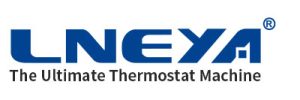 LNEYA
LNEYA
 简体中文
简体中文










